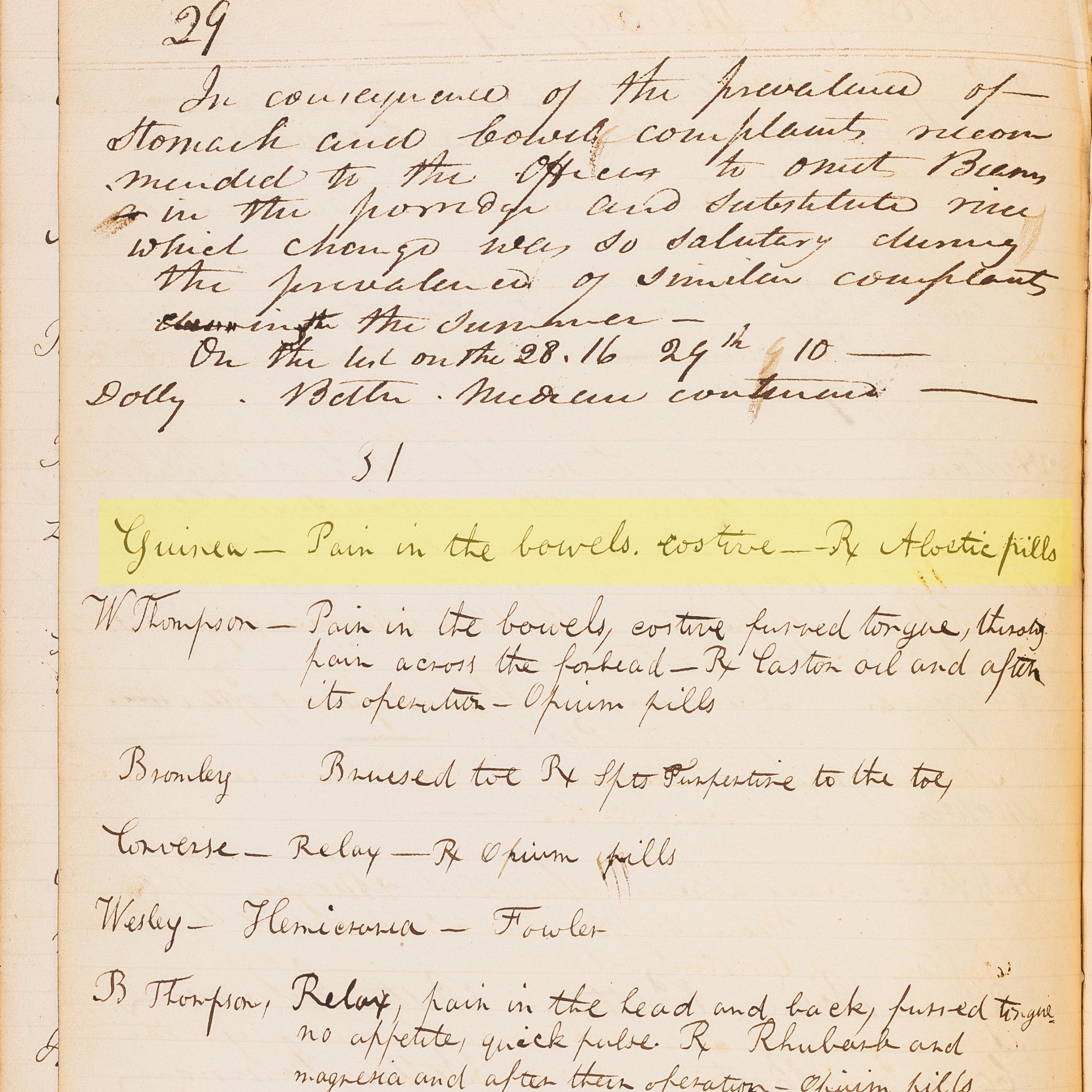The Body of Prince Mortimer, an 18th Century Enslaved Individual, May Have Been Sent To Yale For Dissection!
In my mission to document the life of Prince Mortimer, I recently learned some new information.
Prince Mortimer was an 18th century enslaved individual and Revolutionary War vet in Connecticut who was sent to prison for life at age 87, accused of attempting to poison his enslaver as a means to free himself. He should have been freed 4 decades prior for his service in the Revolutionary War, but wasn’t. He also should have been freed in 1794 when his prior enslaver (Philip Mortimer) freed him in his will…a will that was overturned in the courts when contested by the enslavers son-in-law (George Starr), who became his new enslaver and the person he was accused of attempting to poison in 1811.
Last week, I was researching at Beinecke Rare Book and Manuscript Library on the campus of Yale University, I was looking for correspondence between Yale School of Medicine and who I thought was the warden of the Wethersfield Connecticut prison at the time, Moses Pilsbury. I knew that when prisoners died while incarcerated, the state allowed Wethersfield Prison to send those bodies to Yale for dissection. I was trying to find evidence that Prince Mortimer’s body was sent to Yale School of Medicine in 1834. While I found proof of Yale requesting bodies from Wethersfield prison, I was unable to find anything specific to Prince Mortimer.
Once returning home, I spoke with local historian Frank Winiarski. Frank explained to me that after an 1830 prisoner death triggered an investigation, warden Moses Pilsbury resigned his post and his son Amos succeeded him as warden. Therefore, Amos Pilsbury was the warden of Wetherfield prison when Prince Mortimer died in 1834, not his father Moses. I also discovered there are letters at The Library of Congress in Washington, D.C. written by Amos Pilsbury during his tenure! I’m planning an upcoming trip to D.C. to review these artificats, so more to come!
In addition, I learned that Amos Pilsbury was notorious for prisoner malnourishment and stealing prisoner food rations to feed his own family. In researching prison health at the prison, I discovered that The American Antiquarian Society (a national research library located in Worcester, MA) had the prison hospital ledger from 11/1/1829 thru 11/5/1831. The ledger contained daily prisoner treatment records! You can see those who were mistreated by the warden and died as a result, as well as inmates complaining of anorexia and stomach issues.
Within these ledgers, Prince Mortimer (nicknamed Guinea) is not noted at all in 1830, an amazing feat considering his age. He would have been around 106 years old in 1830! He’s first referenced in January of 1831. Below are some of the records referencing Prince:
January 31st, 1831: Prince complains of pain in his bowls. He's prescribed aloctic pills.
August 5th, 1831: Prince has no appetite and is prescribed Bitters Infusion.
August 24th, 1831: Prince is admitted to the prison hospital, given a prescription I can't make out and ordered, “a supply of good food.“
September 5th, 1831: Still in the hospital, Prince appears to be prescribed wine 3 times per day.
September 7th, 1831: Still in the hospital, Prince is listed as having a better appetite, but the order of better food is reiterated. He would remain hospitalized in all remaining records, listed as “Stationary“.
I know he was old, but this all makes me wonder if the food crimes of the warden hastened Princes' health descension.
Anyway, still digging into the life of Prince Mortimer. More to come.



